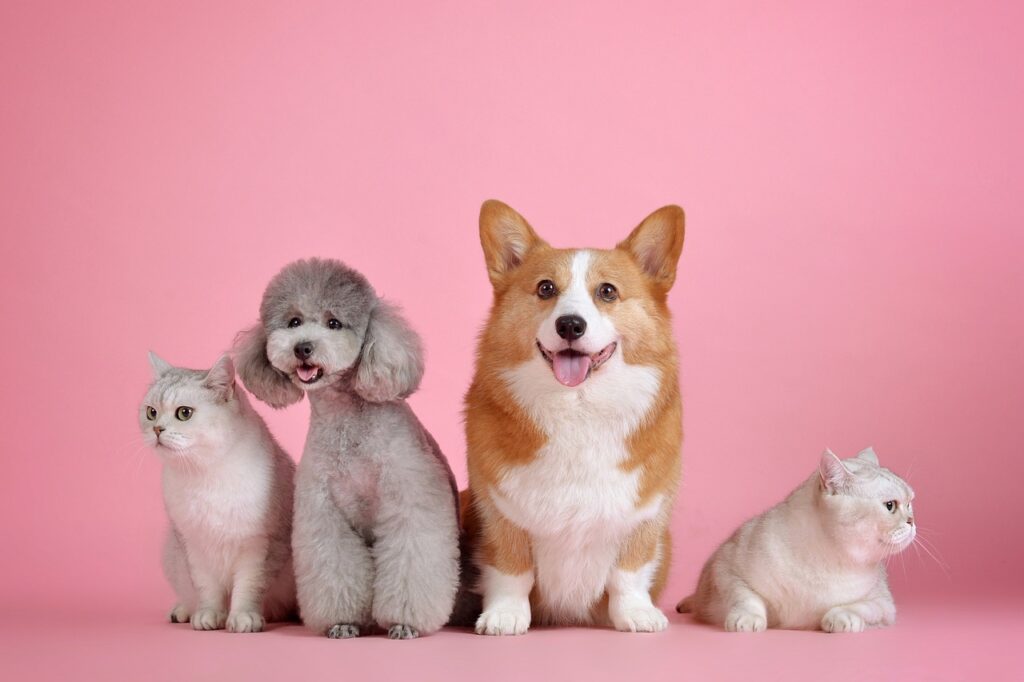A Complete Guide on Caring for Specialty Pets
Have you ever adopted a pet you feel is “special”? Perhaps it might be a ferret, sugar glider, hedgehog, or something similar. These are often referred to as “exotic pets”, “alternative pets”, or “specialty pets”.
These creatures make lovely companions for the right person. Yet, there are certain animal care guidelines that go with certain pets. For this reason, you will wish to read this article for tips on pet care.

Navigating Pet Responsibilities
Caring for specialty pets can be an even bigger challenge. They often require a much higher level of expertise and resources. It is important to recognize any extra needs a pet may have and take steps to meet them.
Research should be conducted to learn more about the basic care requirements of the specialty pet in question. This includes knowing what they eat, any necessary medication, cage/tank size, and temperature/humidity requirements.
Once their needs are understood, the pet owner must ensure those needs are being met on a consistent basis. Navigating pet responsibilities can be especially difficult if the pet requires a highly specialized care regimen.
It is important to consult with a veterinarian or other pet care professional when necessary. Consider if their special requirements can realistically be met before committing to owning a specialty pet.
Understanding Dietary Requirements
Understanding dietary requirements is an important factor when caring for specialty pets. Depending on the type of pet you have, its diet will vary greatly. For example, some reptiles need live insects to feed on, while some small mammals require pellets and specific fresh fruits and vegetables.
Collecting information from reptile or bird breeders, wildlife rehabilitators, good vet, and other knowledgeable sources is very important in determining the dietary requirements your pet will need.
Proper nutrition is essential to the health and wellbeing of your pet, so taking the time to research and assess its dietary needs is an important part of responsible pet health.
Exploring Appropriate Environments
Specialty pets are those that require a great deal of attention, specialized care, and specific environments for their wellbeing and longevity. When considering the ownership of a specialty pet, it is important to explore appropriate environments to ensure the pet’s optimum health and comfort.
Temperature, humidity, and even lighting can all affect the health and well-being of certain species. For example, some reptiles, hermit crabs, and amphibians may require a controlled atmosphere with high humidity and temperatures that are not too warm or too cool.
When exploring appropriate environments for your specialty pet, consider the shelter, the diet, space, and furniture that it will need. Make sure to research your pet’s exact needs and create an environment that offers a comfortable and stress-free habitat for your pet.
With proper care and the right environment, you can enjoy many happy and healthy years with your specialty pet.
Establishing Regular Health Checks
Caring for specialty pets requires many important steps, one of which is establishing regular health checks. It is important to understand what type of health checks are necessary for your pet.
This varies based on the species, and knowing these checks can help an owner make sure their pet is in the best possible health. Regular health checks focus on areas like diet, exercise, grooming, weight, and even mental health.
Scheduling veterinarian visits is a key part of this, and often tests are necessary to check for specific diseases. When caring for specialty pets it is also important to recognize signs of illness or stress, and to monitor and adjust their environment accordingly. Doing so will ensure they receive the best possible care.
Knowing When to Seek Veterinary Care
When caring for specialty pets, one of the most important things to consider is knowing when to seek veterinary care. Specialty pets can include birds, reptiles, and small animals such as rabbits and hamsters.
It is important to be alert to any changes in the behavior or physical health of your pet that may indicate they require veterinary care. Look out for signs such as lack of activity, reduced appetite, change in vocalizations, injury or superficial lumps, bumps, or sudden weight loss.
It is also important to stay up to date with vaccinations and deworming, as well as any other preventative veterinary health care, such as dental checkups at the best pet insurance company.
Additionally, it can be beneficial to keep a log of any changes in behavior to help detect any patterns that may help to identify any health problems.
Taking these steps can help to ensure your pet remains in optimal health and prolongs its life, improving their experience by having a long and enjoyable companionship.
Supplies Needed for Optimal Specialty Pet Care
Supplies needed for optimal specialty pet care may include filters, heating elements, tanks or habitat elements, oxygen pumps, and shutter releases, depending on the pet.
Other materials such as cleaning supplies, food, and enrichment items such as toys must also be provided. Ensuring the pet’s living areas are regularly checked and maintained for safety is also necessary.
With the right supplies and knowledge, any homeowner can provide their exotic pet with the best possible environment.
Grooming and Bathing for Specialty Pets
Grooming and bathing for specialty pets is an important and essential part of having a healthy pet. Depending on the type of specialty pet, their grooming needs will vary.
For example, long-haired breeds of cats and dogs, curly-coated breeds, and hairless pets may all require special grooming. In addition, it is important to brush the fur regularly to keep it clean and free from mats.
Bathing should be done as needed but not too often as it can strip away the natural oils in the fur that help protect the skin from irritation. It is important to use the appropriate products for bathing specialty pets, such as hypoallergenic and tearless shampoos to help keep the hair and skin healthy.
Lastly, always blow-dry the fur after a bath, and provide them with some sort of sun protection to protect from the damaging effects of UVA and UVB rays. Following these steps will help ensure that your pet remains healthy and happy.

Learn All About Specialty Pets
Caring for specialty pets requires a lot of extra attention, money, and research. Specialty pets deserve the best care possible, and owners who are willing to provide this will reap the rewards of having a healthy and happy pet.
If you are thinking about getting a specialty pet, make sure to get the information needed to guarantee it is receiving the necessary care.
Did you find this article helpful? Check out the rest of our blog for more related content.





